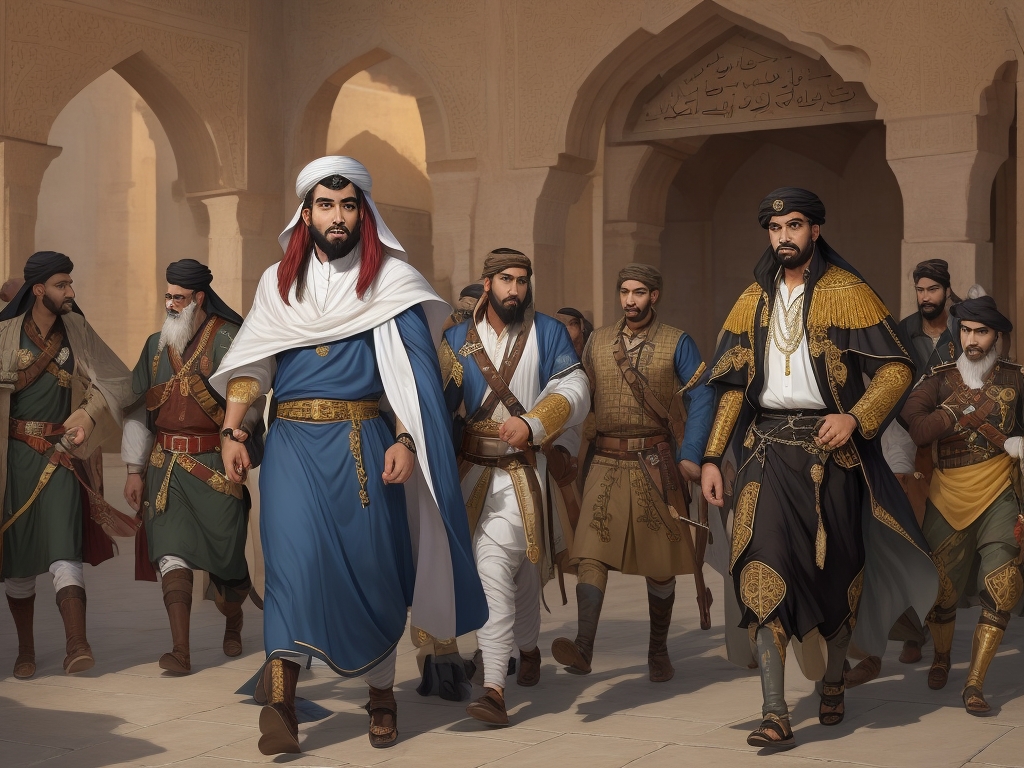Introduction
Umair ibn Wahb ibn Khalf ibn Wahb ibn Hudhaafah al-Jumahi, a prominent figure in the pre-Islamic era, was one of the staunchest enemies of Islam. His conversion story, occurring in the second year of Hijra after the Battle of Badr, stands as a testament to the transformative power of faith. This article delves into Umair's journey from animosity to acceptance, highlighting his pivotal role in the conquest of Egypt and his subsequent embrace of Islam.
Umair's Role in the Battle of Badr
Umair ibn Wahb fought against the Muslims in the Battle of Badr, standing with the polytheists. After the battle, he was tasked by the Quraysh to assess the strength of the Muslim army. Despite his hostility towards Prophet Muhammad and his companions, Umair displayed strategic acumen, providing a detailed account of the Muslims' numbers and resources. However, his perception changed drastically during this encounter, setting the stage for his eventual conversion.
Umair's Lineage and Conversion
Umair belonged to the prestigious lineage of Hudhaafah, descending from the Quraysh tribe. His transformation began when he found himself in a contemplative moment with Safwan ibn Umayyah, another staunch opponent of Islam, after witnessing the aftermath of the Battle of Badr. Umair, despite his malicious intentions, felt a profound shift within him. The conversation with Safwan led him to question the purpose of his animosity, especially considering the imminent demise of his son, Wahb ibn Umair, captured during the Battle of Badr.
Fueled by his desire to secure his son's safety, Umair approached Safwan, contemplating the idea of embracing Islam. Safwan, recognizing Umair's internal struggle, offered to shoulder the responsibility for his debts and familial obligations, allowing Umair to focus on his spiritual quest. Umair's heart softened, leading him to seek solace and guidance from Prophet Muhammad.
Umair's Conversion and Reconciliation
Umair embarked on a transformative journey to Medina, where he faced an unexpected reception. Initially, Umair's intentions were questioned by Umar ibn al-Khattab, who saw him approaching the mosque with a sharpened sword, symbolizing his past hostility. Umar, ever protective of the Prophet, seized Umair's weapon, displaying a deep mistrust.
However, the Prophet intervened, inviting Umair to speak. Umair, overwhelmed by the moment and the weight of his past actions, confessed his past disbelief, acknowledging the truth of Islam. In a powerful act of reconciliation, the Prophet forgave Umair, embracing him and allowing him to witness the genuine spirit of Islam.
Umair's Mission in Mecca and his Redemption
Umair, now a devout Muslim, returned to Mecca. His mission was twofold: to call his people to Islam and seek redemption for his past transgressions. He confronted the Quraysh with unwavering faith, facing their resistance and enduring their hostility. Despite the challenges, Umair persevered, embodying the transformative power of faith.
Conclusion
Umair ibn Wahb's conversion from a fierce opponent of Islam to a devoted believer exemplifies the mercy, forgiveness, and transformative potential embedded within the teachings of Islam. His story stands as a testament to the Prophet's capacity for forgiveness and the profound impact of embracing faith. Umair's redemption journey serves as an enduring reminder of the transformative power of sincere repentance and the inclusive nature of Islam, embracing even the most ardent adversaries.

